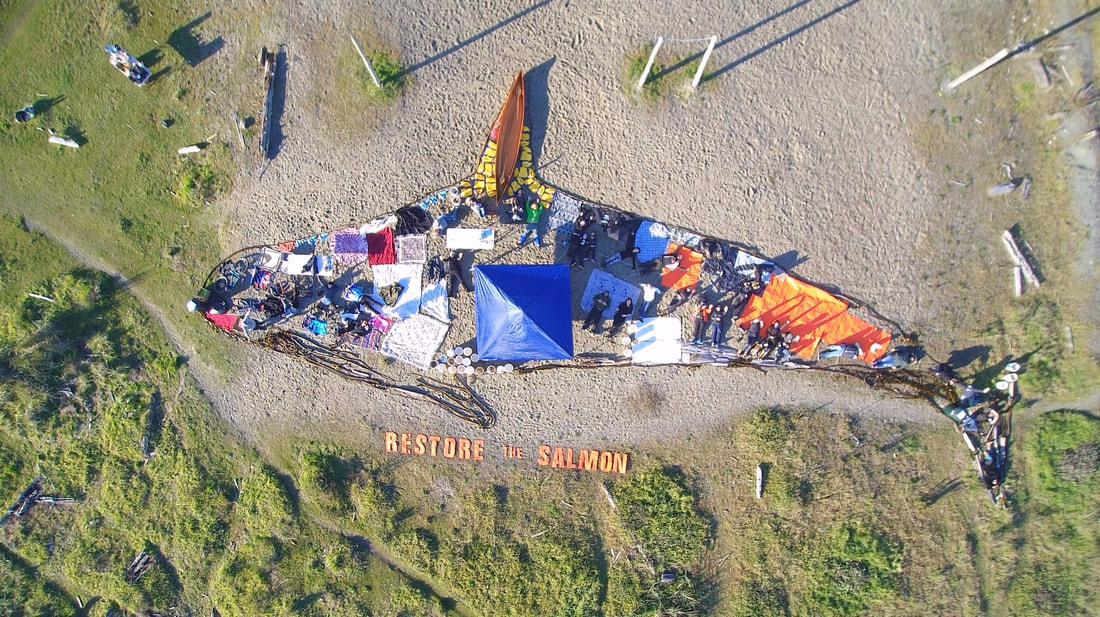Keeping a healthy ocean with an intact food web will ensure life for generations to come. However, with climate change, warming and acidifying oceans, dams, farmed fish diseases, micro-plastics and environmental toxicants that accrete in the tissues of wildlife, we have our work cut out for us.
Our primary approach to repairing historical environmental damage and preventing contemporary damage from expanding is through education, building the next generation of stewards and on-the-ground actions that make a difference for all of us. See our list of accomplishments below.
2024 - On Sacred Ground has been awarded a Park Ventures grant by the National Park Foundation to invite high school students from Seattle schools for an environmental education program on San Juan Island
Stay tuned for details.....
Stay tuned for details.....
2021 & 2022 - On Sacred Ground speaks to 300 9th grade biology students at Lynnwood High School on the importance of weaving together Salmon, Orca & Coast Salish Tribal Reconciliation
2021 - 300 9th graders over two schools years had an opportunity to witness the Blue Heron Canoe family perform an Orca honoring dance and to hear from keynote speakers Dr. Deborah Giles of Wild Orca, Sam Barr of Samish and Stillaguamish Nation, Mike Evans, chair of the Snohomish Tribe, and Sarah Hanson, On Sacred Ground Executive Director. The students have a specific ecology unit of study titled, "The Salmon/Orca Dilemma" and tied what they learned from keynote speakers into their studies.
2022 - Keynote speakers included Dr. Deborah Giles of Wild Orca, Paul Chiyokten Wagner, W̱SÁNEĆ Tribal Member, Founder of Protectors of the Salish Sea and award winning flutist, and Annie Crawley, underwater photographer, filmmaker and member of the Women Divers Hall of Fame.
2022 - Keynote speakers included Dr. Deborah Giles of Wild Orca, Paul Chiyokten Wagner, W̱SÁNEĆ Tribal Member, Founder of Protectors of the Salish Sea and award winning flutist, and Annie Crawley, underwater photographer, filmmaker and member of the Women Divers Hall of Fame.
2018 - On Sacred Ground Facilitates 1st Orca Recovery Day on San Juan Island in partnership with Puget Sound Conservation Districts

Sarah Hanson organizes a beach clean-up and 3 keynote speakers at Jackson Beach, including Dr. Deborah Giles, Science and Research Director of Wild Orca, Sam Barr, Samish Nation member and Stillaguamish Tribal Historic Preservation Officer, and Stephanie Solien, co-chair of Governor Inslee's Southern Resident Orca Recovery Task Force. Photo above taken by the Backbone Campaign of participants at Jackson Beach